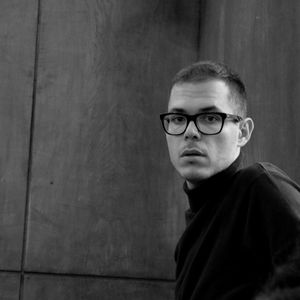Valentin Kalinov
Faculty of Philosophy and History at Paissiy Hilendarski University of Plovdiv (Bulgaria) 
Visiting Researcher
Duration of stay: February 2025
E-Mail
Events with Valentin Kalinov
6 Feb 25 | 12:00 | Room 017, Altes Finanzamt | Meet & Greet the Visiting Researchers
Valentin Kalinov is an assistant professor at the Faculty of Philosophy and History at Paissiy Hilendarski University of Plovdiv, Bulgaria. He holds a B.A. in Psychology and both a B.A. and M.A. in Philosophy from Sofia University “St. Kliment Ohridski.” In 2019, he earned his Ph.D. in Philosophy with a dissertation on the places of truth in the field of psychoanalysis.
As a scholar of social and intellectual history, his research focuses on the intersections of philosophy, critical theory, psychoanalysis, and the social history of ideas. His work investigates the processes of knowledge production, transfer, and transformation within psychotherapy and mental health sciences during the communist era in Eastern Europe, particularly in Bulgaria. In his current research project, he explores the translation and adaptation of Western psychotherapeutic discourses in the socialist context, offering a critical perspective on how such practices intersected with ideological power and resistance. His forthcoming monograph, Reading Freud in State Socialism: Psychoanalysis and Psychotherapy during the Communist Era, situates Bulgarian developments within the broader Eastern Bloc, drawing comparisons with other socialist states such as the GDR, Yugoslavia, and Hungary.
Dr Kalinov is also an associate of KX – Critique and Humanism Publishing House, where he contributes to the dissemination of critical thought through translations of humanities books from Italian into Bulgarian, including works by Giorgio Agamben and Carlo Ginzburg.
As a scholar and clinical psychologist, he bridges disciplines to examine how intellectual and cultural exchanges shape individual and collective behavior under shifting historical conditions. His work on trauma, memory, and the silences surrounding state violence and repression has been presented internationally, including at the University of Regensburg and the 60th Venice Biennale.
